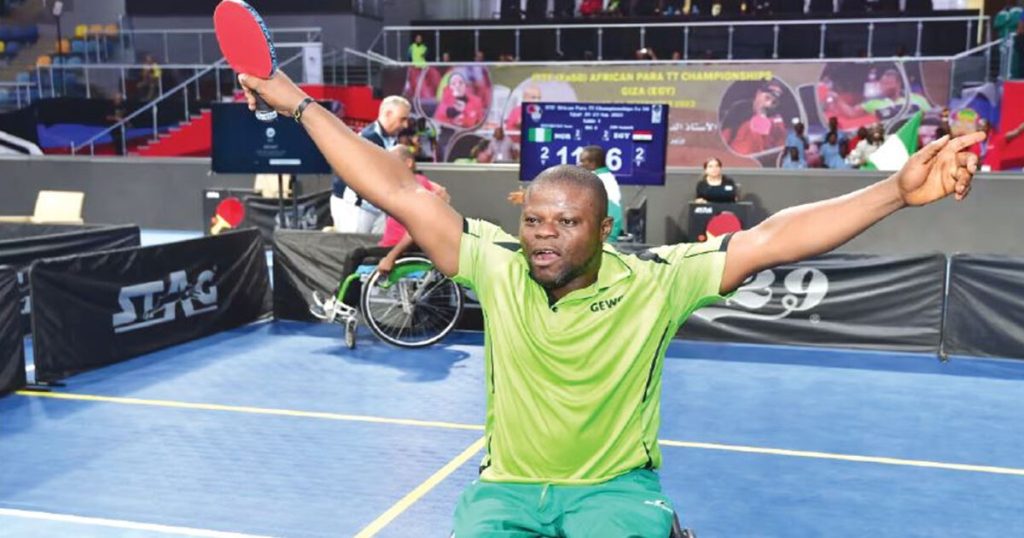Isau Ogunkunle’s journey to Paralympic bronze medalist is a testament to perseverance and passion in the face of adversity. His introduction to para table tennis was serendipitous, a chance encounter with a gymnastics coach at his shoe repair shop in Abeokuta, Nigeria, opening a door to a world he never knew existed. This encounter led him to the Alake Sports Centre, where he witnessed individuals with disabilities competing in para table tennis, sparking an interest that would transform his life. Within a year, Ogunkunle transitioned from observer to competitor, representing Nigeria at the 2011 African Championship in Egypt. Despite his nascent experience, he secured a bronze medal, signaling his potential and setting the stage for his future accomplishments.
Ogunkunle’s path to Paralympic success was fraught with challenges. Limited financial resources meant long walks to training sessions, a stark contrast to the support enjoyed by athletes in more developed nations. The lack of consistent financial backing and access to high-quality equipment further complicated his training, often forcing him to practice without a coach. These material hardships were compounded by societal attitudes towards disability, creating a mental and emotional battle that tested his resolve. Despite these obstacles, Ogunkunle’s self-motivation and dedication propelled him forward, proving his unwavering commitment to the sport.
The 2024 Paris Paralympic Games marked a pinnacle in Ogunkunle’s career, a moment of triumph on the global stage. Winning the bronze medal in his class was a significant achievement, made even more remarkable by the fact that he was the only African athlete in his category to secure a medal. The experience of competing against the world’s best para table tennis players and emerging victorious solidified his place among the elite in the sport. The Paris Paralympics served as validation of his years of hard work and dedication, showcasing his talent and resilience to the world.
The aftermath of the Paris Games highlighted the disparities in support for para athletes in Nigeria. While the federal government, spearheaded by the First Lady, organized a reception and provided financial support, Ogunkunle’s home state of Ogun offered no such recognition. This contrast underscored the need for greater awareness and support for para athletes at all levels of government and society. Despite the disappointment of his state’s lack of acknowledgement, Ogunkunle remained grateful for the federal government’s support and expressed hope for improved recognition and appreciation of para athletes across Nigeria.
Ogunkunle’s vision extends beyond his own athletic career. He is actively involved in mentoring a young para table tennis player in Abeokuta, passing on his knowledge and expertise to nurture the next generation of athletes. This commitment to mentorship reflects his desire to contribute to the growth of para table tennis in Nigeria, fostering a legacy that extends beyond his own achievements. His vision underscores the importance of investing in young talent and providing them with the support and guidance they need to succeed.
Looking ahead, Ogunkunle aims to compete in the 2028 Los Angeles Paralympic Games, after which he plans to transition into coaching or a developmental role within para sports. He acknowledges the difficulties faced by African athletes, particularly the lack of funding, equipment, and facilities compared to athletes in other regions. Ogunkunle’s appeal for support from private sponsors, NGOs, and individuals emphasizes the need for a collaborative effort to elevate para sports in Nigeria, unlocking the potential of talented athletes who often lack the resources to compete at the highest level. His call for a collaborative approach highlights the importance of shared responsibility in fostering athletic excellence.














